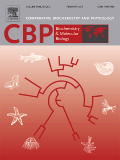
COMPARATIVE BIOCHEMISTRY AND PHYSIOLOGY B-BIOCHEMISTRY & MOLECULAR BIOLOGY
Scope & Guideline
Transforming Understanding of Biochemical Processes
Introduction
Aims and Scopes
- Comparative Biochemistry:
The journal emphasizes comparative approaches in biochemistry, examining how different organisms utilize biochemical pathways for metabolism, stress responses, and growth. - Physiological Adaptations:
Research articles often explore physiological adaptations to environmental changes, such as temperature, salinity, and hypoxia, highlighting the biochemical mechanisms underlying these adaptations. - Molecular Biology Techniques:
The journal publishes studies employing modern molecular biology techniques, including transcriptomics, proteomics, and genetic manipulation, to investigate gene function and regulation. - Ecological and Evolutionary Perspectives:
A focus on ecological and evolutionary perspectives allows for insights into how biochemical and physiological traits evolve in response to environmental pressures and habitat changes. - Aquatic and Terrestrial Organisms:
The journal covers a diverse range of species, including aquatic (fish, invertebrates) and terrestrial organisms, providing a broad understanding of comparative biochemistry across different life forms.
Trending and Emerging
- Omics Approaches:
The use of genomics, transcriptomics, and proteomics has surged, allowing for comprehensive analyses of biological processes and interactions at multiple levels. - Climate Change Impacts:
There is a growing focus on understanding the biochemical and physiological impacts of climate change on various species, particularly in relation to thermal stress and ocean acidification. - Microbiome Interactions:
Research exploring the interactions between host organisms and their microbiomes is on the rise, highlighting the importance of microbial communities in health and disease. - Nutritional Biochemistry:
Studies focusing on the biochemical impacts of diet, particularly in aquaculture and livestock, are increasingly prevalent, reflecting a growing interest in sustainable food production. - Biotechnology and Environmental Applications:
Emerging research in biotechnology and its applications for environmental conservation and restoration is gaining attention, particularly in the context of using biological systems for pollution mitigation.
Declining or Waning
- Traditional Biochemical Pathways:
Research focusing on classical biochemical pathways has decreased, as newer studies emphasize integrative and multi-omics approaches, reflecting a trend towards more complex analyses. - Invertebrate Physiology Studies:
There has been a noticeable decline in studies centered on invertebrate physiology, particularly concerning basic physiological mechanisms, as the focus has shifted towards vertebrate models. - Single-species Studies:
The prevalence of single-species studies is waning, with a shift towards comparative studies that encompass multiple species to provide broader ecological insights. - Basic Enzyme Kinetics:
Research centered solely on basic enzyme kinetics has become less common, as studies increasingly integrate kinetic analysis with functional genomics and proteomics.
Similar Journals
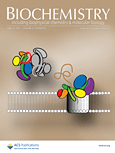
BIOCHEMISTRY
Advancing biochemical knowledge for a deeper understanding of life.BIOCHEMISTRY is a premier academic journal published by the American Chemical Society, dedicated to advancing the field of biochemistry through the dissemination of high-quality research. With an ISSN of 0006-2960 and an e-ISSN of 1520-4995, this esteemed publication has been a vital resource since its inception in 1962 and continues to contribute to the scientific community, boasting a remarkable Q1 ranking in the field as of 2023. The journal's well-curated content emphasizes fundamental biochemical research, molecular genetics, and innovations in biochemical techniques, catering to a diverse audience of researchers, professionals, and students. Although not an open-access publication, BIOCHEMISTRY plays a crucial role in facilitating knowledge exchange and fostering academic collaboration globally, making significant contributions to the understanding of the biochemical processes that underpin life.
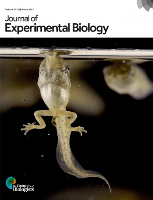
JOURNAL OF EXPERIMENTAL BIOLOGY
Innovative Research Shaping the Future of BiologyJOURNAL OF EXPERIMENTAL BIOLOGY, published by COMPANY BIOLOGISTS LTD, stands as a cornerstone in the fields of Animal Science, Aquatic Science, Ecology, Insect Science, and Physiology. With a rich history dating back to 1945, this esteemed journal has continually provided a platform for high-quality research, evidenced by its impressive Q1 rankings across multiple categories in the 2023 Journal Citation Reports. Located in the United Kingdom, it serves an international audience, offering critical insights and advancements in various biological sciences. As a non-open access journal, it provides rigorous peer-reviewed articles that contribute profoundly to our understanding of biological processes and their implications. With an extensive reach among researchers, practitioners, and academia, the JOURNAL OF EXPERIMENTAL BIOLOGY is not only a repository of knowledge but also a catalyst for ongoing research and innovation in experimental biology.
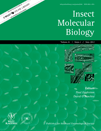
INSECT MOLECULAR BIOLOGY
Elevating Entomological Research Through Molecular DiscoveryInsect Molecular Biology, published by Wiley, is a leading journal dedicated to advancing the field of insect biology through molecular perspectives. With a prominent ISSN of 0962-1075 and an E-ISSN of 1365-2583, this journal has gained a significant reputation since its inception in 1992, showcasing a diverse array of research that spans across genetics, molecular biology, and specific aspects of insect science. As of 2023, it has achieved a remarkable categorization, recognized as Q1 in Insect Science and Q3 in Genetics and Molecular Biology, underscoring its pivotal role in fostering academic discourse at the intersection of biology and technology. The journal is indexed in esteemed databases with strong rankings, sitting at the 82nd percentile in Insect Science, which highlights the impactful research it publishes. While it currently does not offer open access, Insect Molecular Biology remains an essential resource for researchers, students, and professionals eager to explore the complexities of insect life at the molecular level. By disseminating innovative findings and methodologies, the journal significantly contributes to both theoretical and applied entomological research, making it a cornerstone for anyone passionate about the intricate world of insects.

BIOCHEMICAL GENETICS
Unraveling the Complexities of Life at the Molecular LevelBIOCHEMICAL GENETICS, published by Springer/Plenum Publishers, is a prominent journal in the fields of biochemistry, genetics, and molecular biology, with a substantial impact on the scientific community since its inception in 1967. The journal holds a significant position within various academic quartiles, ranking Q2 in Ecology, Evolution, Behavior and Systematics, and Q3 in Biochemistry, Genetics, and Medicine (miscellaneous), among others, demonstrating its diverse and interdisciplinary reach. With an ISSN of 0006-2928 and an E-ISSN of 1573-4927, it is recognized for contributing critical research insights and methodologies that drive the fields of biochemical genetics forward. Although it is not an Open Access journal, it provides vital access options and resources for researchers globally, facilitating the dissemination of knowledge across institutions. Positioned within the competitive landscape of Scopus rankings, it maintains respectable standings across its focused areas, making it an invaluable resource for researchers, professionals, and students seeking to deepen their understanding of genetic mechanisms and biochemical processes.

Comparative Biochemistry and Physiology D-Genomics & Proteomics
Connecting the Dots: Comparative Studies in Genomics and ProteomicsComparative Biochemistry and Physiology D-Genomics & Proteomics, published by Elsevier Science Inc, is a premier journal in the realm of molecular biology and comparative physiology, with a focus on genomic and proteomic sciences. Recognized for its high-impact contributions, it holds a Q1 ranking in Animal Science and Zoology and was established with the vision of bridging gaps in our understanding of biological systems through experimental and comparative approaches. With an impressive Scopus ranking, this journal not only ranks among the top 12% in Animal Science and Zoology but also demonstrates commendable standings across various categories including Aquatic Science and Molecular Biology. The journal’s commitment to disseminating high-quality research makes it an essential resource for researchers, professionals, and students alike, allowing them to access critical studies that influence advancements in genomics and proteomics. While it operates under a traditional subscription model, its impactful findings are crucial for those aiming to enrich their knowledge and research capabilities in these pivotal scientific fields. Join us in exploring the transformative insights and developments that this esteemed journal has to offer for the study of genomics and proteomics.
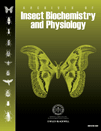
ARCHIVES OF INSECT BIOCHEMISTRY AND PHYSIOLOGY
Connecting Research and Practical Applications in EntomologyArchives of Insect Biochemistry and Physiology, an esteemed journal published by WILEY, stands at the forefront of advancing the understanding of insect physiology and biochemistry. With an ISSN of 0739-4462 and E-ISSN of 1520-6327, this journal serves as a critical resource for researchers and professionals in the fields of biochemistry, insect science, and physiology. As of 2023, it holds a respectable impact factor with a Q3 ranking in Biochemistry and Physiology, and a Q2 in Insect Science, highlighting its relevant contributions to these disciplines. The journal has maintained a continuous publication history from 1983 to 2024, hosting pioneering research and review articles that inform both academic and practical applications in entomology. While it does not currently offer open access, it is accessible through various institutional subscriptions, ensuring widespread availability of essential findings. This journal plays a vital role in elucidating the complex biochemical pathways and physiological adaptations of insects, fostering knowledge that is crucial for ecological research, agricultural development, and conservation efforts.

FISH PHYSIOLOGY AND BIOCHEMISTRY
Unlocking the Secrets of Aquatic PhysiologyFISH PHYSIOLOGY AND BIOCHEMISTRY, published by Springer, is a leading journal in the fields of aquatic science, biochemistry, and physiology, with an impressive trajectory since its inception in 1986 and continuing through 2024. Operating from the Netherlands, this journal serves as a vital platform for researchers, professionals, and students alike, showcasing innovative studies that explore the physiological and biochemical aspects of fish, contributing significantly to our understanding of aquatic ecosystems and their inhabitants. With a robust impact factor reflected in its Q1 status in Aquatic Science and notable rankings in other relevant categories, FISH PHYSIOLOGY AND BIOCHEMISTRY maintains a strong scholarly influence, evidenced by its Scopus ranking within the top quartiles of various biological sciences disciplines. While the journal does not currently offer open access options, it remains a cornerstone for advancing knowledge and fostering collaboration within the community dedicated to aquatic biology and related fields.
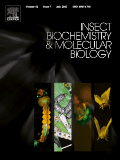
INSECT BIOCHEMISTRY AND MOLECULAR BIOLOGY
Fostering Interdisciplinary Research in Insect BiologyINSECT BIOCHEMISTRY AND MOLECULAR BIOLOGY, published by Pergamon-Elsevier Science Ltd, stands at the forefront of interdisciplinary research focusing on the biochemical and molecular processes in insects. This esteemed journal, with an ISSN of 0965-1748 and E-ISSN of 1879-0240, serves as a vital resource for scientists and researchers interested in the intricacies of insect physiology and genetics. With a significant presence in the academic community, it holds impressive rankings, including Q2 in Biochemistry and Q1 in Insect Science according to the latest quartiles, reflecting its critical role in advancing knowledge in these fields. The journal's convergence of content from 1992 to 2024 illustrates its commitment to fostering long-term scholarly discourse. Researchers will appreciate its impact within the Agricultural and Biological Sciences and its contributions to understanding the molecular biology of insects. Although not an open-access journal, it provides complementary insights into the biochemistry and genetics of insects, making it indispensable for anyone keen on pushing the boundaries of entomological science.

BIOCHEMISTRY-MOSCOW
Illuminating the Path of Biochemical ProgressBIOCHEMISTRY-MOSCOW is a distinguished academic journal published by MAIK NAUKA/INTERPERIODICA/SPRINGER, focusing on pivotal research in the fields of biochemistry, biophysics, geriatrics, and broader medical sciences. Established in 1972, the journal has a rich history of disseminating critical findings and innovative studies, making significant contributions to the advancement of biochemical knowledge and applications. With its Q2 ranking in various categories including biochemistry and gerontology, the journal commands respect within the scientific community, offering a reputable platform for both established researchers and emerging scholars alike. Although traditionally not an open-access journal, it provides a wealth of information accessible through institutional subscriptions, ensuring the latest advancements reach a global audience. The journal aims to enhance understanding of biochemical processes and their implications for human health, and its commitment to high-quality peer-reviewed content has established it as a vital resource for those invested in the life sciences.

BIOCHEMICAL SOCIETY TRANSACTIONS
Exploring the Frontiers of Biochemistry TogetherBIOCHEMICAL SOCIETY TRANSACTIONS is a premier journal published by Portland Press Ltd, renowned for its rigorous dissemination of cutting-edge research in the field of biochemistry. Established in 1973 and currently spanning until 2024, this journal has solidified its standing with an impressive Q1 category ranking in Biochemistry, reflecting its commitment to high-quality scholarship and innovation. It plays a crucial role in bridging current biochemical research with its practical applications, making it an invaluable resource for researchers, professionals, and students alike. The journal enjoys a commendable position in the Scopus Ranks, sitting at Rank #105 out of 438 journals in its category, placing it in the 76th percentile among similar publications. While the journal maintains a subscription-only access policy, it promises to provide readers with comprehensive insights and discoveries that drive advancements in biochemistry and related fields. This journal is not just a repository of information; it is a vibrant community dedicated to the progress of biochemistry, making it essential reading for anyone involved in this dynamic discipline.